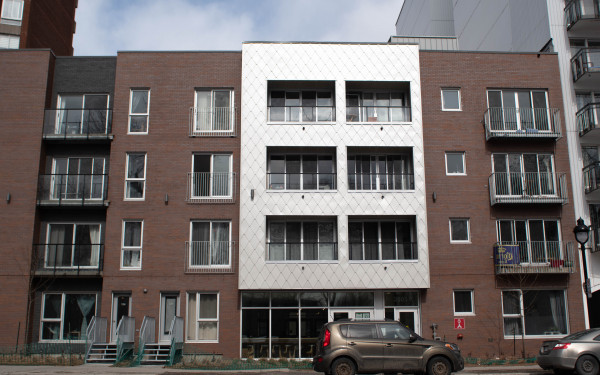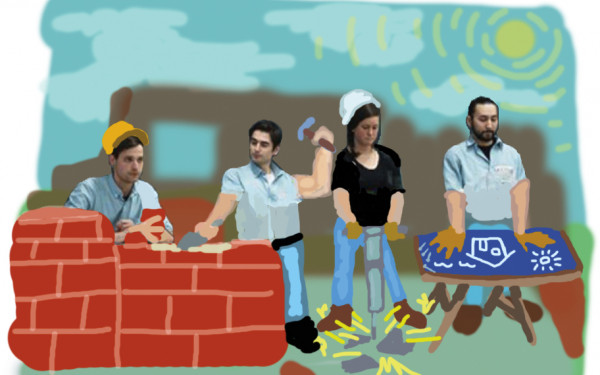Room and Board Students Can Afford
CSU Invites Development Organization to Present Student Housing Studies to Council
Finding decent housing as a student is the hardest part about settling into a new city. How much should students be paying? Which areas are best? What are tenant rights in Montreal?
At the request of the Concordia Student Union, L’Unité de travail pour l’implantation de logement étudiant (UTILE) presented its research on the student housing market in Montreal. The group is a not-for-profit development organization working with student unions in Montreal and at the Université de Laval in Quebec City to eliminate unfair treatment of student tenants.
The median rent paid by students from outside Quebec living in the city is $605 per room with services, while the equivalent for students from the province is $495. University residences in Montreal can only house five per cent of students, while for-profit student housing, like Varcity515, charge between $650 and $1300 per bed.
Laurent Levesque, Gabriel Filion and Laurent Deslauriers, urban planning students at UQÀM, Université de Montréal and McGill University, presented UTILE’s month-long study at last week’s CSU council meeting. Their goal is to develop affordable student housing. They also provided information on student housing to prevent students from getting taken advantage of by landlords by not knowing their rights.UTILE and the CSU cooperated on the market study along with Concordia’s Off-Campus Housing and Job Bank (HoJo).
“It showed that student tenant rights aren’t being respected and there’s a lot of exploitation and abuse in the tenant market in general, especially against international students or students that are from out of province,” said Terry Wilkings, the CSU’s VP Academics and Advocacy, of the group’s findings.
According to UTILE’s research, students will often pay higher rents than other locals and families. Out-of-town students are sometimes asked for illegal deposits, personal and financial information and documents from landlords. Landlords don’t have the right to ask for passport information or social insurance numbers. Findings also showed that a higher proportion of students live in inadequate housing conditions in comparison to non-students.
“Proportionally they face issues in the greater sense, probably due to the language barrier and also the choice of district where they live,” Wilkings said. International students tend to live closer to the university, whereas individuals that grew up in Montreal know of non-central neighbourhoods to live in.
Wilkings says the end goal is to remove students from the tenant market. He’s looking forward to working with UTILE on its pilot project, converting old buildings, and financing new constructions.
“In my opinion, I absolutely see a link between student housing and student space,” Wilkings said.
UTILE is already working on a pilot project in the South-West borough that should create 140 bedrooms for students. The total cost of the project is expected to be $9 million, and the group received $2 million from the Quebec government last year. It’s looking to the city, student groups, the provincial government and any interested investors to support future developments.
“Our first project comes with state money,” said Levesque. “We can’t say that will always be the case.”
But until the referendum passes the CSU isn’t talking digits, saying there are various ways it could invest—either by equity, which will give the union a level of ownership, or loans that can be reimbursed with interest. Any assets made from one project could also be used to build more, says Wilkings.
“We’re a student city and we have to recognize that—in terms of our housing policies.”

_900_600_90.jpg)


_600_375_90_s_c1.jpg)

